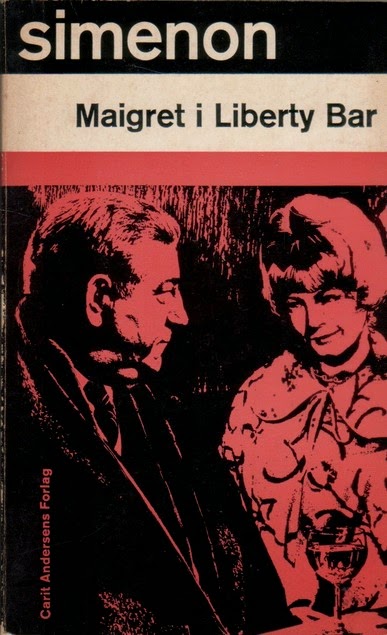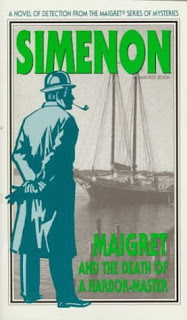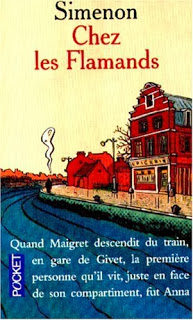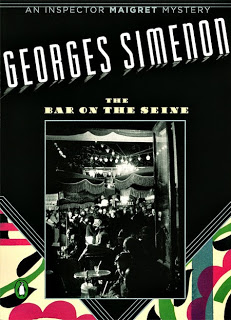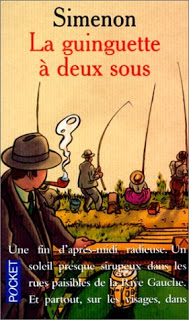Sunday, June 01, 2014
Maigret on the Riviera by Georges Simenon (Harcourt Brace 1932)
Sunday, January 05, 2014
The Madman of Bergerac by Georges Simenon (Penguin Mystery 1932)
Tuesday, December 31, 2013
Maigret and the Death of a Harbor-Master by Georges Simenon (Harcourt, Brace and Company 1932)
Thursday, October 17, 2013
The Flemish Shop by Georges Simenon (Beadley Brothers 1932)
Wednesday, September 25, 2013
Maigret Goes Home by Georges Simenon (Penguin Books 1932)
Friday, September 13, 2013
Maigret Mystified by Georges Simenon (Penguin Crime 1932)
Tuesday, August 27, 2013
The Bar on the Seine by Georges Simenon (Penguin Crime 1932)
Monday, February 20, 2012
Stamboul Train by Graham Greene (Heinemann 1932)

He assured her: "It's a mistake. They are frightened. There has been rioting in Belgrade. They want me, that's all."
"But why? You're English, aren't you?"
"No, I'm one of them," he said with some bitterness.
"What have you done?"
"I've tried to make things different." He explained with an air of distaste for labels: "I am a Communist."
At once she exclaimed: "Why? Why? watching him fearfully, unable to hide that she felt her faith shaken in the only man, except Myatt, able and willing to help her. Even the kindness he had shown her on the train she now regarded with suspicion. She went to the bench and sat down as far as she could from the German.
"It would take a long time to tell you why," he said. She took no notice, shutting her mind to the meaning of any words he uttered. She thought of him now as one of the untidy men who paraded on Saturday afternoons in Trafalgar Square bearing hideous banners: "Workers of the World, Unite", "Walthamstow Old Comrades', "Balham Branch of the Juvenile Workers' League". They were the killjoys, who would hang the rich and close the theatres and drive her into dismal free love at a summer camp, and afterwards make her walk in procession down Oxford Street, carrying her baby behind a banner: "British Women Workers".
"Longer than I've got," he said.
She took no notice. She was, for the moment in her thoughts, immeasurably above him. She was a rich man's mistress, and he was a workman. When she at last took notice of him it was with an ingenious contempt: "I suppose you'll go to gaol."
"I think they'll shoot me," he said.
She stared at him in amazement, forgetting their difference in class: "Why?" He smiled with a touch of conceit: "They're afraid."
"In England," she said, "they let the Reds speak as much as they like. The police stand around."
"Ah, but there's a difference. We do more than speak."
"But, there'll be a trial?"
"A sort of trial. They'll take me to Belgrade."

